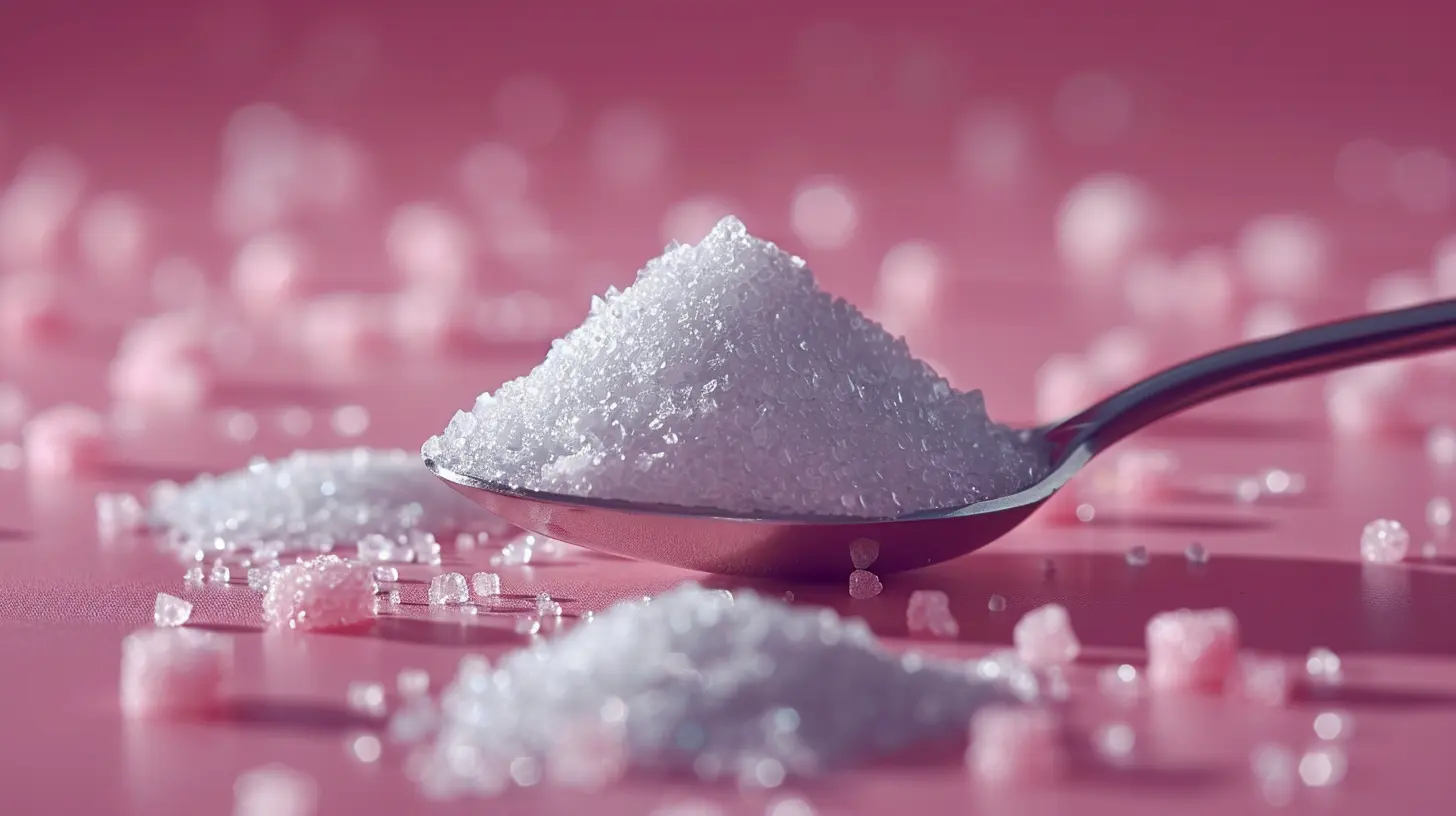24 November 2024
Let’s face it—sugar has earned itself a bad reputation over the years. From sneaky calories to dreaded sugar crashes, it’s no wonder many of us are searching for healthier alternatives. Enter sugar substitutes, those sweet little swaps that promise all the joy of sweetness without the guilt. But the big question remains: Are they really better for you? Or are they just wolves in sheep’s clothing? Let’s break it down together.
What Are Sugar Substitutes?
Before we dive into the pros and cons, let’s define what we’re talking about here. Sugar substitutes are sweeteners that replace traditional table sugar (sucrose). They’re found in everything from diet sodas and protein bars to your favorite "sugar-free" desserts.There are generally two types of sugar substitutes:
1. Artificial Sweeteners – These are lab-made sweeteners like aspartame, saccharin, and sucralose (you may recognize them as Equal, Sweet’N Low, or Splenda). They’re usually calorie-free and intensely sweet—sometimes hundreds of times sweeter than sugar.
2. Natural Substitutes – These come from natural sources, like stevia, monk fruit, or sugar alcohols (like erythritol and xylitol). They’re marketed as the “healthier” replacements since they’re not chemically synthesized.
But just because something is labeled as "sugar-free" doesn’t automatically make it healthy, right? Let’s find out why.
Why People Turn to Sugar Substitutes
We’ve all heard the reasons: cutting back on calories, maintaining blood sugar levels, or simply following a healthier diet. But there’s often more to the story. Here are some common motivations for switching to sugar substitutes:- Weight Management: No calories, no problem, right? Many people believe artificial and natural sweeteners can help them manage their weight by reducing their overall calorie intake.
- Diabetes-Friendly: Since sugar substitutes don’t spike blood sugar levels like sucrose does, they’re often recommended for people with diabetes.
- Dental Health: Unlike traditional sugar, sugar alcohols like xylitol don’t contribute to tooth decay. In fact, some studies suggest they might even help fight cavities.
- Health Trends and Fads: Let’s be real—labels like “keto-friendly,” “low-carb,” or “zero-calorie” are enough to make anyone reach for a sweetener instead of sugar.
Sounds like a win-win, right? Well, not so fast. There are other sides of the story that we need to consider.
The Pros of Sugar Substitutes
Okay, let’s give credit where credit is due. Sugar substitutes do come with certain perks that traditional sugar just can’t match. Here are some of the notable benefits:1. Lower Calorie Count
If your goal is shedding a few pounds, sugar substitutes can help. Traditional sugar packs about 16 calories per teaspoon, while most substitutes are calorie-free or extremely low-calorie. For anyone trying to maintain a calorie deficit, this sounds like a dream come true.2. Blood Sugar Stability
For diabetic individuals, sugar substitutes can be a lifesaver. Substitutes like stevia or erythritol don’t cause dramatic spikes in your blood sugar, making them a safer choice compared to regular sugar.3. Better for Your Teeth
Unlike sugar, which is like rocket fuel for bacteria in your mouth, certain sugar substitutes (like xylitol) may actually protect your pearly whites. Some chewing gums even use xylitol specifically for its dental benefits!4. Sweet Satisfaction Without the Guilt
If you’ve got a sweet tooth, substitutes allow you to indulge without the post-dessert remorse. Whether it’s sugar-free cookies or a stevia-sweetened iced latte, sugar substitutes let you enjoy the sweetness without the calorie bomb.
The Cons of Sugar Substitutes
Now, let’s pump the brakes. While sugar substitutes have their fair share of benefits, they’re not perfect. They’ve got their own baggage, and you deserve to know about it.1. Artificial Doesn’t Always Mean Safe
Artificial sweeteners like aspartame or saccharin have long been controversial. Although they’ve been deemed safe by organizations like the FDA, some studies suggest links to health concerns, including headaches, gut issues, and even an increased risk of certain diseases. Yikes.2. The Gut Microbiome Debate
Your gut is home to trillions of bacteria that keep your body running smoothly. But studies show that some artificial sweeteners, like sucralose, might disrupt the delicate balance of your microbiome. This could lead to digestive woes, inflammation, or even metabolic problems.3. The “Craving Issue”
Here’s the kicker: despite being calorie-free, some sugar substitutes may actually mess with your cravings. They trick your brain into thinking you’re eating something sweet, potentially causing you to crave more sugar later. It’s like telling your sweet tooth, “Hey, I’m teasing you but not really feeding you.”4. Taste Trade-Off
Let’s be honest—sugar substitutes have come a long way, but they don’t always deliver that same rich, satisfying taste as sugar. Some sweeteners (looking at you, stevia) can leave a weird aftertaste that doesn’t exactly scream "yum."Are Sugar Substitutes Really Better?
So, are sugar substitutes better than regular sugar? The answer isn’t one-size-fits-all. Let’s break this question down a bit:1. If you’re trying to lower calorie intake or control blood sugar, sugar substitutes can definitely be a helpful tool—but they’re not a magic bullet.
2. If you’re concerned about artificial ingredients and potential health risks, you might favor natural substitutes like stevia or monk fruit over lab-made ones.
3. If taste is non-negotiable for you, you might find traditional sugar still reigns supreme.
In short, sugar substitutes are neither heroes nor villains. They’re more like neutral characters that can be helpful in moderation, but shouldn’t be overused or blindly trusted.
Tips for Using Sugar Substitutes Wisely
So, you’ve decided to give sugar substitutes a shot. That’s great! But like anything else in your diet, moderation and mindful use are key. Here are a few tips to keep in mind:- Read Labels: Some "sugar-free" products sneak in other unhealthy ingredients. Check the nutrition facts and ingredient lists before buying.
- Test Different Options: Not all substitutes are created equal. Try a few to see what works best for your taste buds and lifestyle.
- Don’t Rely Too Heavily: Think of sugar substitutes as a tool, not a crutch. Moderation is essential.
- Prioritize Whole Foods: Sweeteners, whether natural or artificial, are still processed to some extent. Focus on naturally sweet whole foods like fruit when you can.
Final Thoughts: Sweet but Savvy
At the end of the day, the truth about sugar substitutes isn’t black and white. They have their benefits, but they also come with some potential downsides. Are they better than sugar? Sometimes. Are they a perfect solution? Not quite. The key is finding what works best for you and balancing it with an overall healthy diet.After all, a little sweetness in your life—whether from sugar or a substitute—isn’t the enemy. It’s all about balance.










Elsinore Bellamy
Great insights! Understanding sugar substitutes helps us make healthier choices.
February 2, 2025 at 3:41 PM